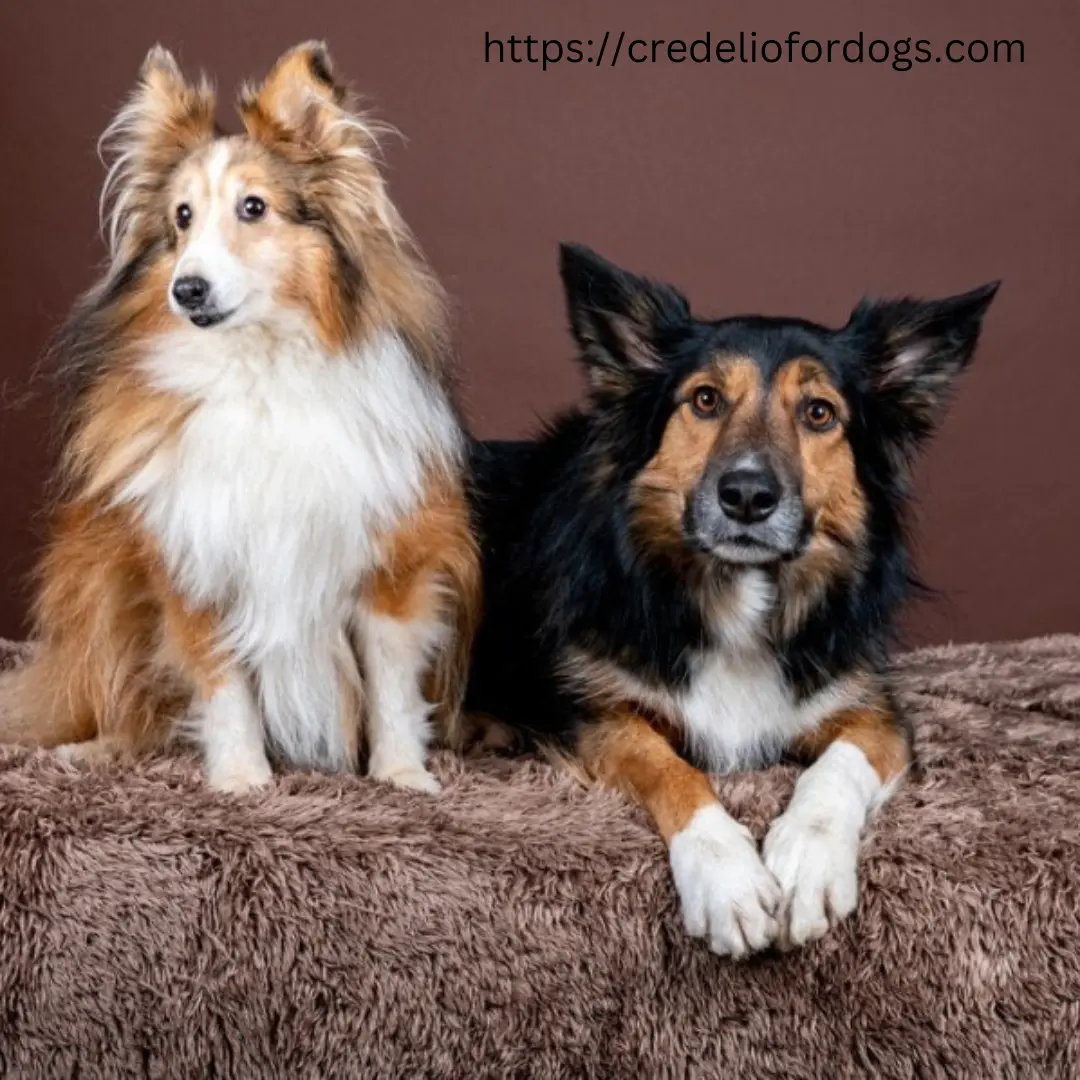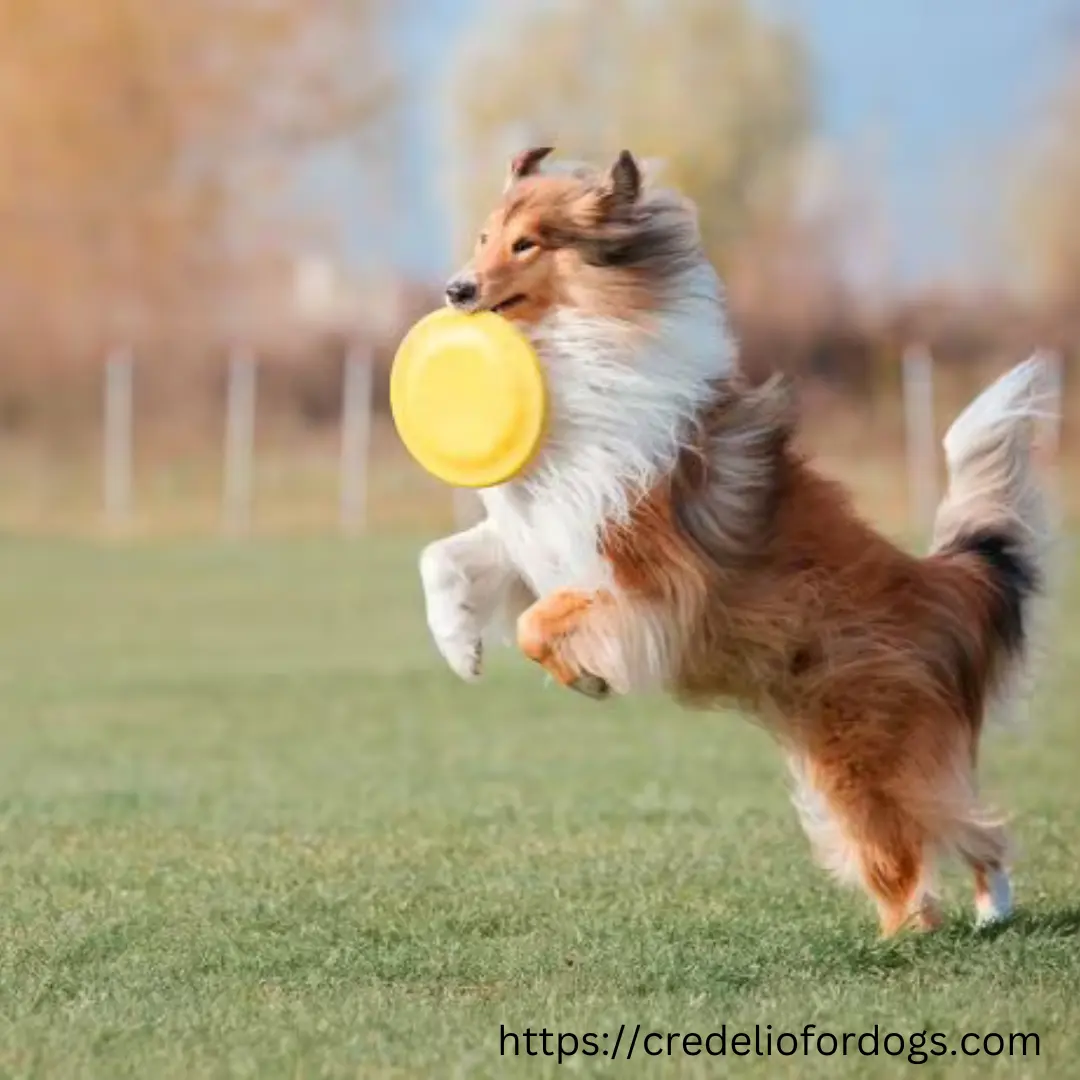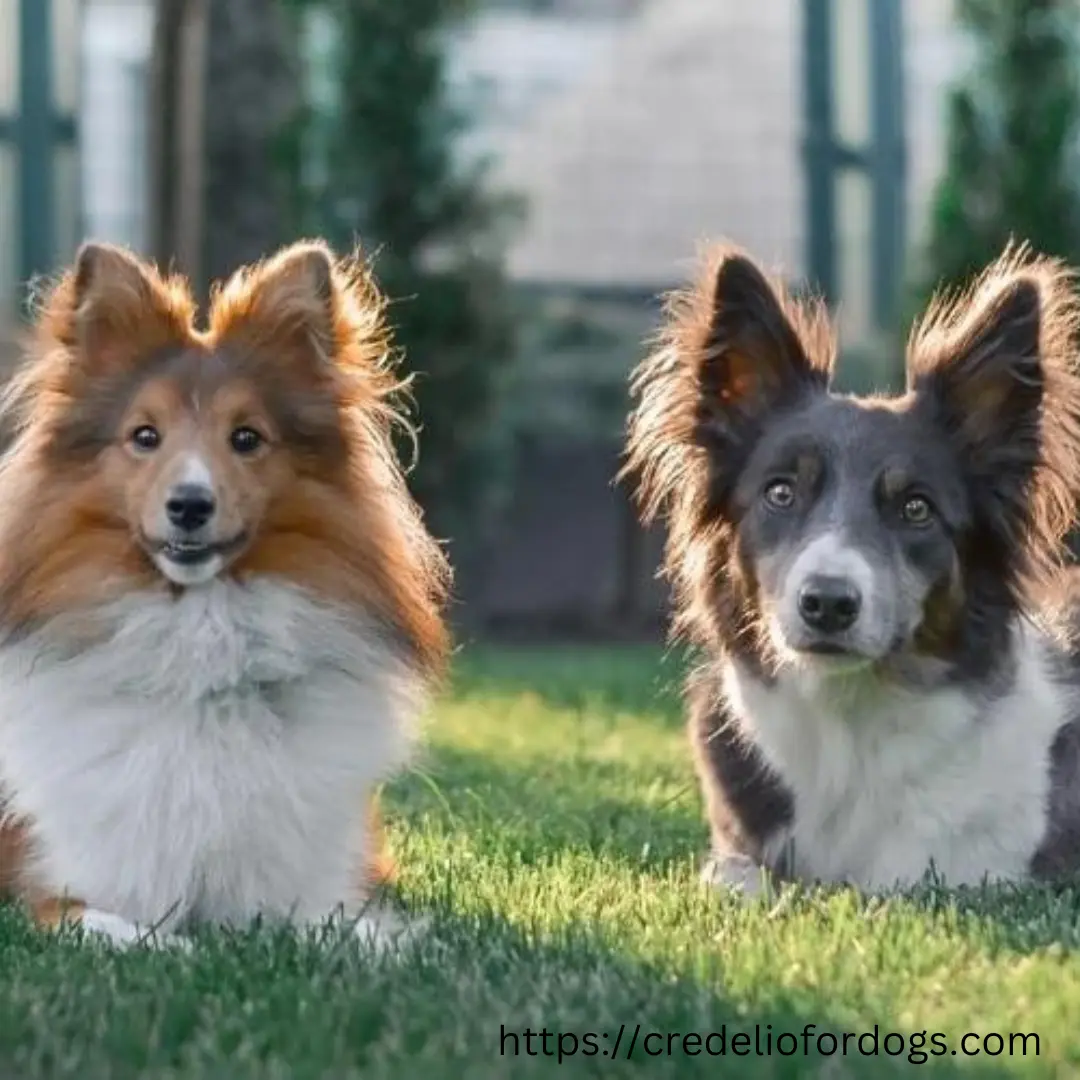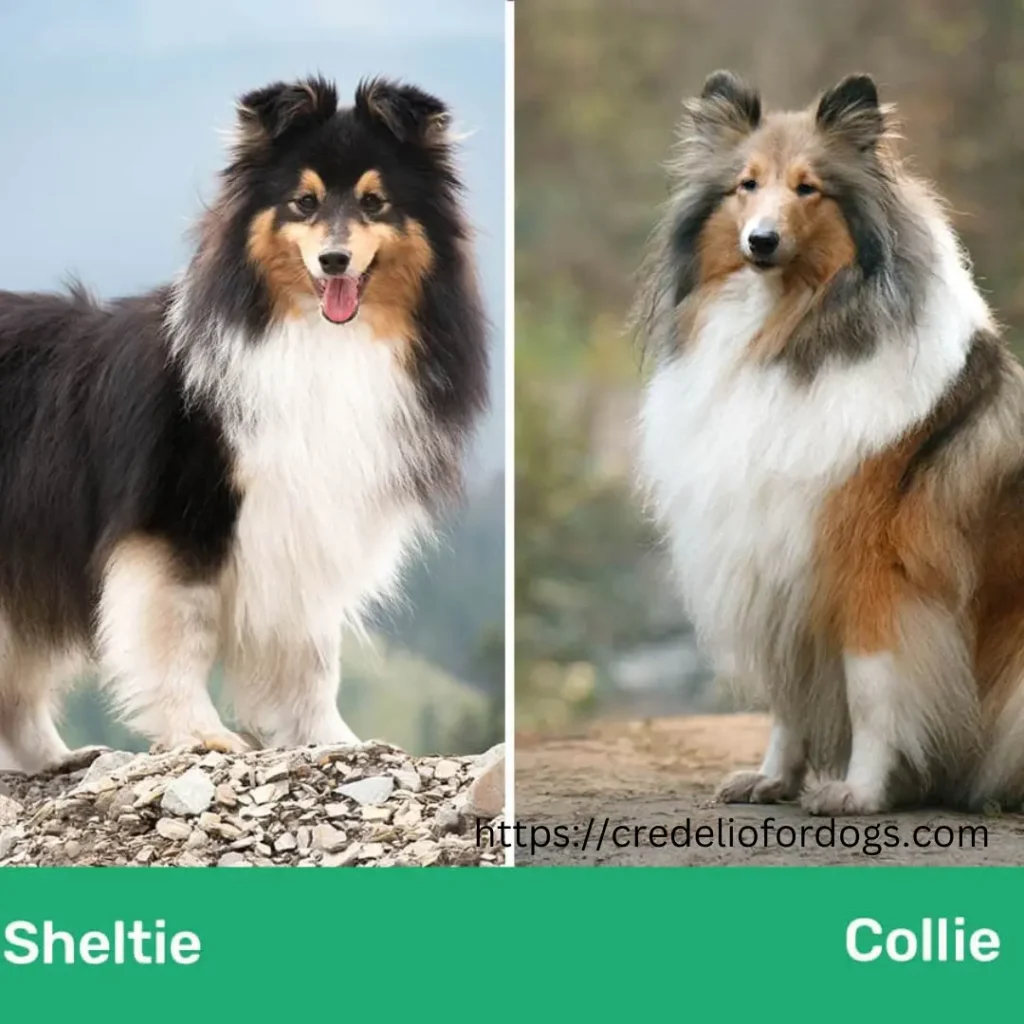The Shetland Sheepdog, sometimes known as the Sheltie, and the Collie are two common choices for shepherd breeds. Although they are both smart, devoted, and wonderful companions, their sizes, temperaments, activity requirements, and care demands are very different. To help potential owners make an informed choice, this article will provide an in-depth comparison of these two popular breeds.

Size and Appearance
Shetland Sheepdog:
The Shetland Sheepdog is a small to medium-sized dog that typically weighs between 15 and 25 pounds and stands 13 to 16 inches tall at the shoulder. Shelties need frequent brushing to keep their long, thick double coat in good condition. They have a remarkable appearance due to their expressive eyes, attentive expression, and beautiful body.
Collie:
Collie breeds are larger than other breeds. Their height at the shoulder ranges from 22 to 26 inches, and they weigh between 50 and 75 pounds. Collies can have two types of double coats: rough (long and dense) or smooth (short and thick). Thanks to popular culture icons like the Lassie, the Rough Coated Collie is the breed that is most commonly known. Their sophisticated looks and fine build make them one of the most popular dog breeds.
Temperament and Personality
Shetland Sheepdog:
Shelties are known for their perceptiveness, devotion and intelligence. They compete well in obedience and agility events and are very trainable. Shelties also have a strong sense of family loyalty and get along well with children and other animals. However, they can be hesitant or shy around strangers and, if improperly trained, can bark excessively. Because of their strong herding abilities, they may try to herd adults, pets, or even children.
Collie:
Collie dogs are kind, friendly and outgoing. They have a reputation for being peaceful and having strong protective instincts. Collies are often devoted and kind to their families and get along well with children and other animals. Although they may not react as quickly as Shelties, they are intelligent and trainable. Compared to Shelties, Collies are less likely to bark excessively, but will still alert their owners to any potential threats.
Exercise and training requirements
Shetland Sheepdog:
Shelties are energetic dogs that need regular exercise to stay happy and healthy. Daily walks, playtime and mental stimulation are essential for this breed. They thrive in an environment where they can engage in activities such as agility, obedience, and herding trials. Shelties are quick learners and respond well to positive reinforcement training methods. They enjoy practicing and mastering canine sports.
Collie:
Collies also need regular exercise, but their energy levels are generally more moderate than Shelties. Daily walks and play sessions are enough to meet their needs. Collies are intelligent and enjoy training sessions, especially those that involve problem solving or learning new tasks. They are also suitable for activities such as obedience and herding but may not be as enthusiastic about high-intensity sports as Shelties.

Grooming and Care
Shetland Sheepdog:
Regular brushing is essential to prevent the Shetland Sheepdog’s double coat from matting and to keep it looking its best. Brushing should be done once a week, and during the shedding season, more regular grooming may be needed. Shelties have dental problems, so it is very important to brush their teeth on a regular basis. An important part of their grooming routine is regular nail clipping and ear washing.
Collies:
Collies—especially the rough variety—need frequent grooming to keep their coats in good condition. Brushing once a week helps prevent matting and tangles. During the shedding season, more regular brushing may be needed. Smooth-coated collies require less maintenance, but still require frequent brushing. Collies need regular nail trimming, ear cleaning and dental care just like Shelties do. Because both breeds are prone to specific genetic health problems, routine veterinary exams are extremely important.

Health and Lifespan
Shetland Sheepdog:
Shelties have a lifespan of about 12 to 14 years. Although they are generally in good health, they may be susceptible to certain hereditary disorders such as hypothyroidism, hip dysplasia, and progressive retinal atrophy (PRA). They need a balanced diet and regular veterinary treatment to keep them healthy.
Collie:
Collies have a similar lifespan, typically 10 to 14 years. They may also suffer from genetic health problems, including hip dysplasia, PRA, and collie eye anomaly (CEA). Regular veterinary check-ups and a healthy diet are vital to their well-being.

